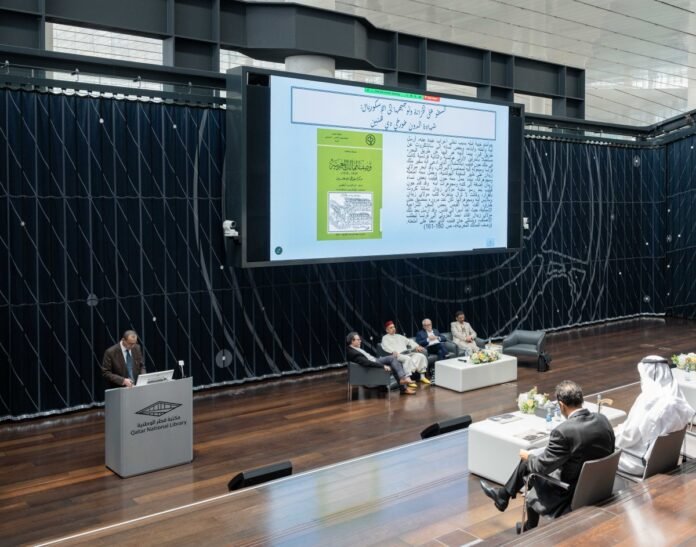Qatar National Library (QNL) opened an international symposium yesterday. It is exploring the historical and cultural significance of Moroccan book-making and manuscript traditions. The symposium is also examining how modern technologies can enhance the preservation and study of this rich heritage.
Held under the title “Moroccan Book-making and Manuscript Production: Approaches to Materials, Traditions, and Functions,” the two-day event forms part of the Qatar–Morocco Year of Culture. It also marks Arabic Manuscript Day 2025. Organized under the patronage of ALECSO and the Institute of Arabic Manuscripts, the symposium brings together researchers, historians, and manuscript experts from across the Arab world.
Participants engaged in discussions and workshops highlighting the contributions of Moroccan bookmakers and scribes—known as warraqoon—in the preservation and transmission of Islamic knowledge. The event also spotlighted the unique characteristics of manuscripts produced in Morocco and the Western Islamic world. It also examined how these compare with Eastern traditions.
Dr. Mahmoud Zaki, Manuscript Librarian and Curator at QNL, described the event as a cultural dialogue linking the craftsmanship of historical scribes with the innovations of the digital age. “From the meticulous work of scribes to the power of algorithms, this symposium builds a bridge between past and present. It offers new tools and perspectives for manuscript studies,” he said.
The event also celebrated the scholarly legacies of prominent Moroccan figures such as Mohammed al-Manouni and Ahmed Chouqui Binebine. Their work in manuscript preservation continues to influence the field. The role of artificial intelligence and digital scholarship was also discussed as a means of revitalizing manuscript studies. This would ensure broader access to this intellectual heritage.


